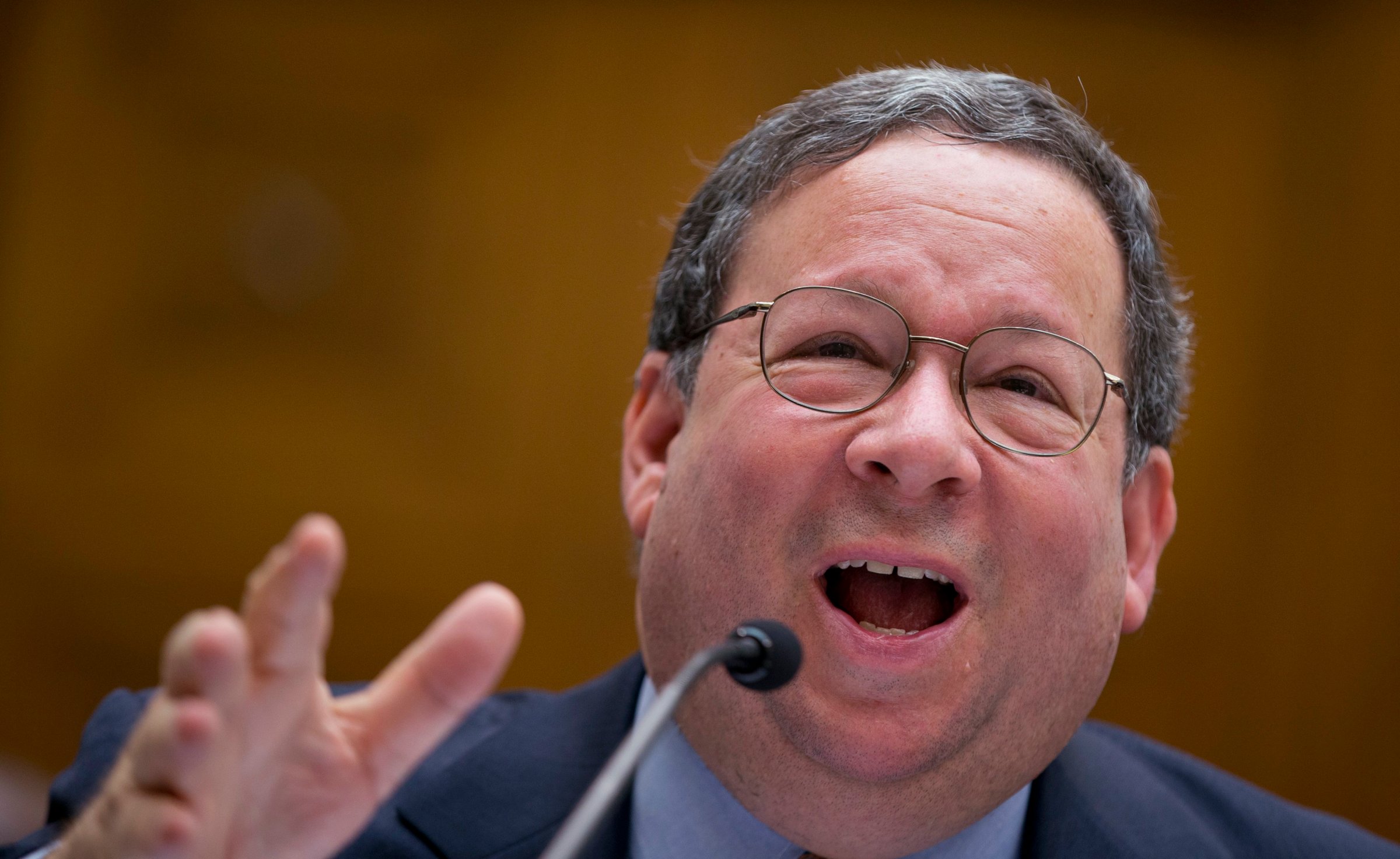
Some of the toughest questions at a House hearing on the proposed merger between Comcast and Time Warner Cable came from an unlikely source Thursday: free-market, anti-government-intervention, Tea Party Republicans.
The biggest critics of the proposed merger since it was announced earlier this year have been left-leaning consumer rights groups, open-Internet advocates and liberal lawmakers like Sen. Al Franken (D-Minn.). But Thursday’s hearing of the House Judiciary Committee hearing saw a different cast of doubters.
Self-described “free market advocate” Rep. Blake Farenthold (R-Texas) repeatedly questioned Comcast executive vice president David Cohen on whether the combined company would increase bills and limit choices for pay TV customers, especially in rural and Hispanic households. Rep. Doug Collins (R-Ga.) questioned Comcast’s choice last August to cut a network, RFDTV, that serves primarily rural audiences that carry programming designed to appeal specifically to rural communities. Reps. Jason Smith (R-Mo.) and Joe Garcia (R-Fla.) homed in on how the merger would affect local businesses in their districts, while Rep. Tom Marino (R-Pa.) said he worried the merger would create “more of an in balance with already left-of-center media environment.”
And Rep. Louie Gohmert (R-Texas) worried that a combined Comcast-Time Warner Cable would be in a position to discriminate against conservative programming, particularly Glenn Beck’s show.
But perhaps the most tense moments came courtesy of Rep. Darrell Issa (R-Calif.), who seemed well versed on Comcast’s cloud-streaming products and questioned the viability of existing anti-trust law to address the issues of “market access” raised by a merger. Existing law addresses “market power that distorts but it doesn’t talk about market access that promotes,” Issa said. Under existing rules, Comcast and Time Warner Cable executives can just “check the boxes” and get the merger approved, but in a world in which customers are streaming traditional cable shows via broadband and saving those shows to a “cloud,” those laws aren’t sufficient, Issa said. He called for “legislative reform to really tie in what the FCC is doing under net neutrality… and do more to make sure there’s access to the consumer.”
Farenthold also raised questions about content discrimination, but focused specifically on Spanish-language programming. “I don’t want to sound hostile to this merger—I think this government needs to stay out of the business world as much as possible,” Farenthold said. “But how do we know you won’t discriminate against other programming?”
Repeatedly pressed by Farenthold and other lawmakers about the prospect of Comcast, which also owns NBC Universal, discriminating against competing content, Cohen said such discrimination doesn’t and won’t happen.
“We do not,” he said. “Laws exist that prevent that.”
Cohen also said Comcast has an incentive to grow its subscriber base, regardless of whose content subscribers are watching.
“It’s not a zero sum game,” he said. “Just because we add one of these new networks doesn’t mean we’re not getting new customers.”
Farenthold said a combined Comcast-Time Warner Cable would serve 91% of Hispanic households in the U.S. and easily dominate the only other local cable competitor in his hometown of Corpus Christi, Texas. Currently, Time Warner Cable currently does not carry the most popular Hispanic sports network in the country, Univision—perhaps, Farenthold suggested, because it competes directly with its own Spanish-language network, Telemundo. He also said that since Time Warner Cable is the only cable option in Corpus Christi that owns the rights to rebroadcast the Astros baseball games, “there’s not a lot of incentive” to allow the competing cable company, Grande, to access to that popular programming.
Smith and Garcia also brought up similar issues, both referencing testimony from the founder and chairman of RFDTV, a rural interest network that receives very high Nielson ratings in markets from Kentucky to New Mexico. RFDTV chairman Patrick Gottsch testified that Comcast had refused to continue to rebroadcast its channel in August last year, without explanation.
Matthew Polka, the President and CEO of the American Cable Association (ACA), which represents small local and regional cable companies, testified that the merger would have an immediate and negative impact on small, regional and rural cable operations’ ability to compete. After a merger, small, independent cable operations would have to pay more for programming, Polka said. A combined Comcast-Time Warner Cable will be able to use its size to “drive down” those costs and either provide customers with more channels, offer lower prices, or both, he said.
Cohen, who remained calm and collected throughout the questioning—and even repeated a few jokes he made during the Senate Judiciary Committee’s hearing last month—got slightly flustered during Farenthold’s questioning.
“Let me—let me respond to that,” he said, repeating an argument he had made in his initial testimony that “there is no evidence that a cable company controlling 30% share of cable customers can control the market.” By hour four of the marathon hearing, Cohen’s voice was growing hoarse as he patiently answered dozens of questions, drawing on the same talking points.
“I think the big winner here is consumers,”Cohen said repeatedly. “Our primary focus will be on consumers.”
More Must-Reads From TIME
- The 100 Most Influential People of 2024
- The Revolution of Yulia Navalnaya
- 6 Compliments That Land Every Time
- What's the Deal With the Bitcoin Halving?
- If You're Dating Right Now , You're Brave: Column
- The AI That Could Heal a Divided Internet
- Fallout Is a Brilliant Model for the Future of Video Game Adaptations
- Want Weekly Recs on What to Watch, Read, and More? Sign Up for Worth Your Time
Write to Haley Sweetland Edwards at haley.edwards@time.com